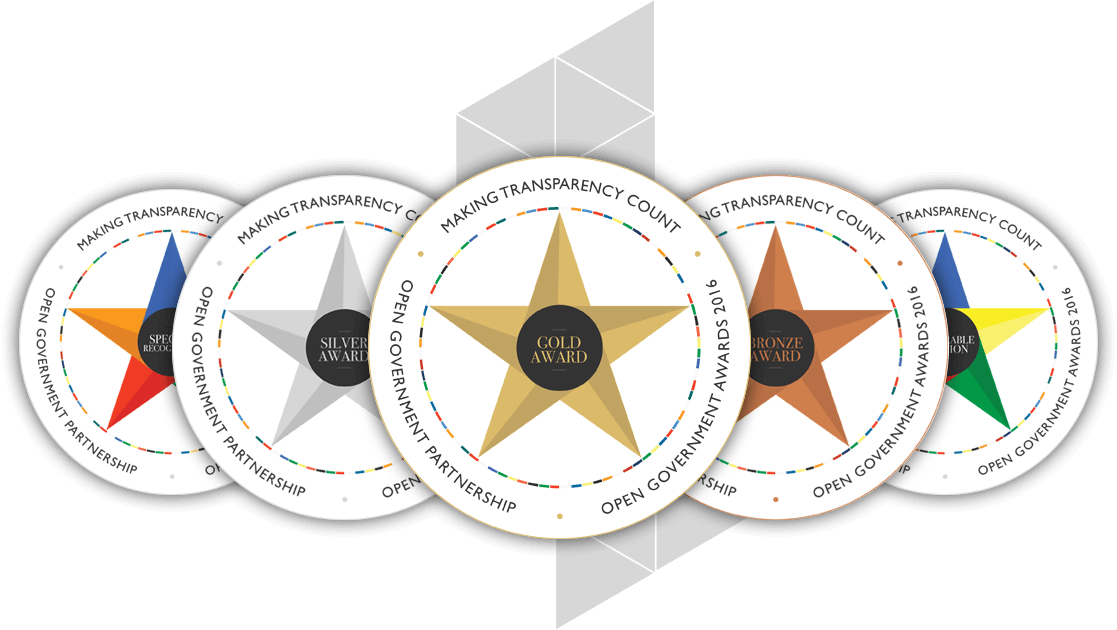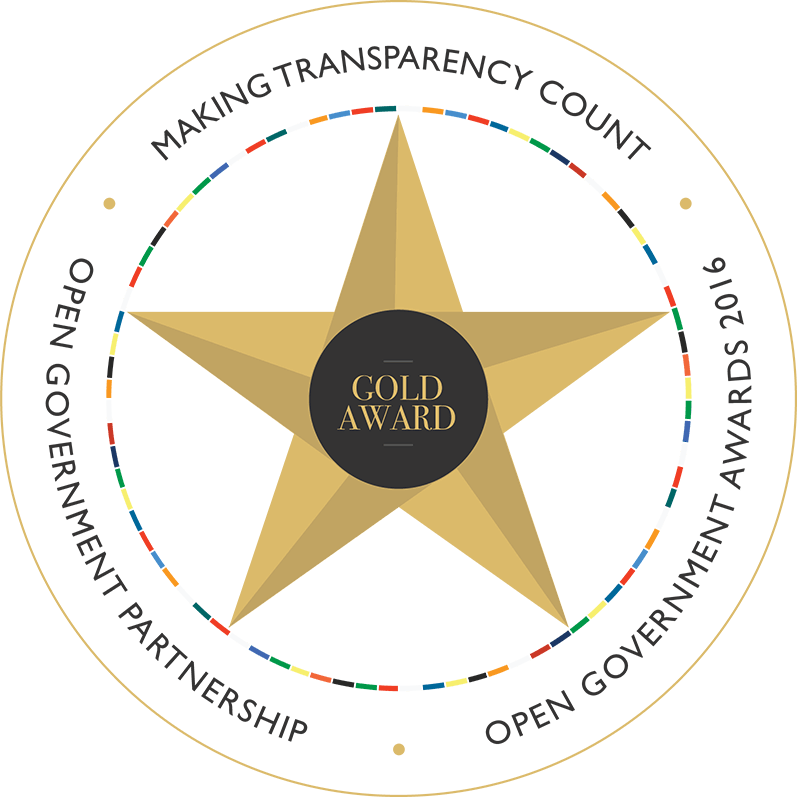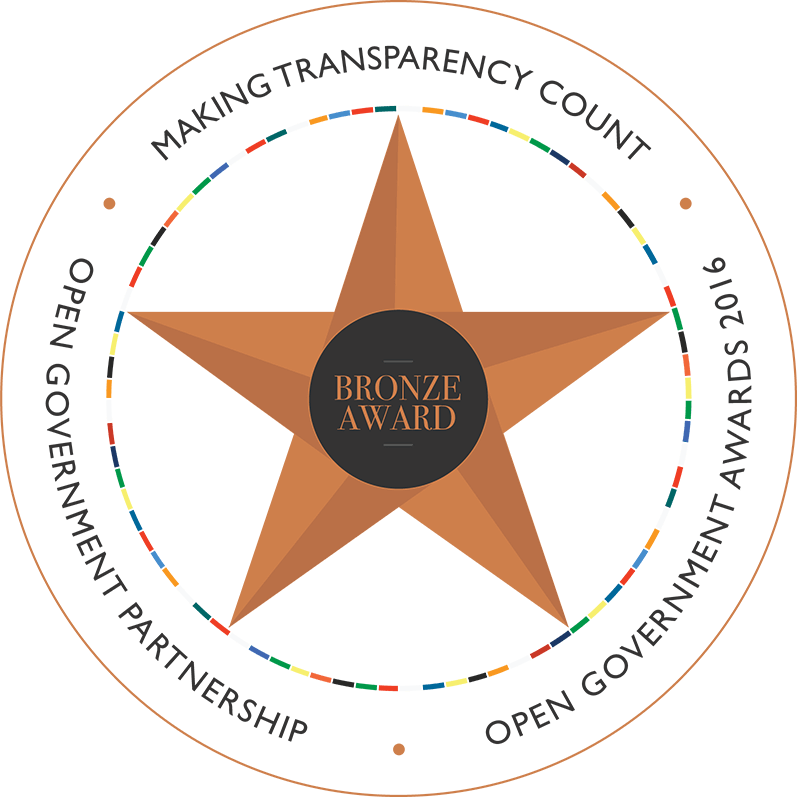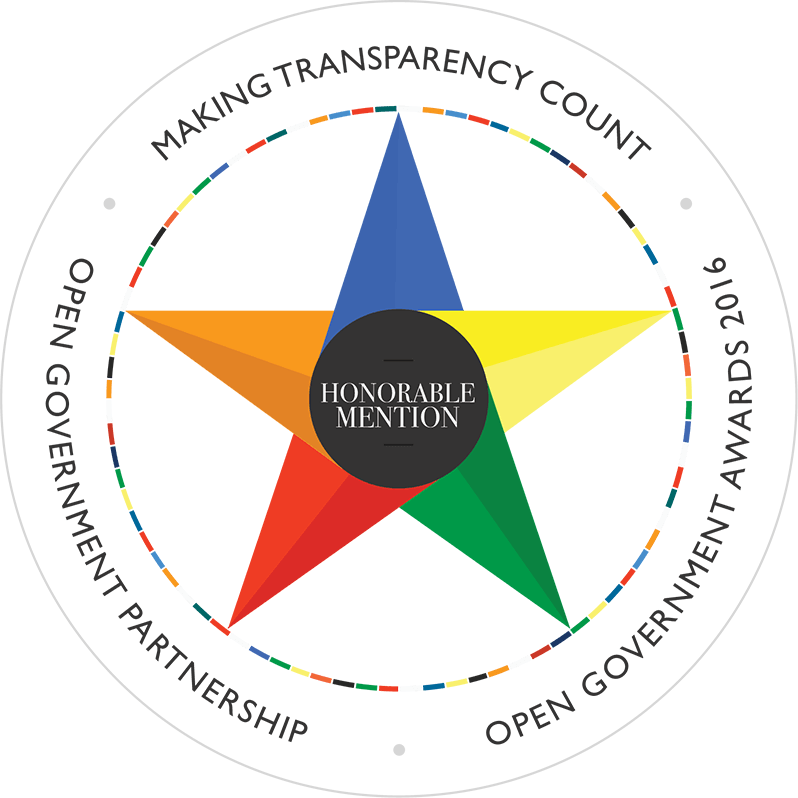2016 Results

In 2014 OGP hosted its first annual Open Government Awards ceremony at the United Nations, in the presence of 10 World Leaders and hundreds of civil society leaders from around the world. The theme of the Awards – Citizen Engagement – asked how are governments involving citizens in designing and implementing public policy or public services, how has the process benefited both government and citizens, and is it a sustainable program?
Thirty-three countries applied – almost all of them joint applications between governments and civil society organizations. An international group of 22 judges from 20 countries, representing governments, civil society, multilaterals and the private sector scored each application. The top 10 initiatives - all rich in content but extremely diverse in terms of their approach - were honored at the OGP High-Level event at the United Nations.
Below is a snapshot of the winning initiatives and a brief summary of what they had achieved.
Theme
In 2016, OGP took one of its foundational values - transparency – and asked applicants to show its real promise for both governments and citizens. Governments and government-controlled entities collect, commission and produce vast quantities of data and information as part of their day-to-day activities. When these are made transparent - readily available and accessible - citizens can creatively use, analyze, visualize and share them for public benefit. This can potentially lead to a wide range of impacts such as improved civic participation in public life, more efficient functioning of government and the creation of new services with social and commercial value. So what does transparency’s real promise look like for you? Did you use the right to information law in your country to hold your government accountable? Have you used government held data to develop an app that citizens widely use to better access public services? Did you help organize data in a way that makes government functioning more effective and save money? The winners of this year’s Open Government Awards show us some ways they have made transparency count. What is remarkable about the winning initiatives is that they did not just end their efforts at advocating for open data or even developing an app, but rather pushed far beyond that to create awareness among user communities (from media to citizens), modeled data use, and collaborated with the government in implementing this initiatives.
Awards Booklet: EnglishAwards Booklet: FrenchAwards Booklet: SpanishParticipation
Civil society organizations from all OGP participant countries were eligible to apply. OGP received 42 applications, with 28 passing to the evaluation stage. While civil society organizations were the primary applicants, all applications had to be validated by a government agency working on the initiative in the application. Additionally, initiatives were required to be directly related to an OGP National Action Plan or specific commitment.
Winners
Judges’ scores were aggregated to produce an absolute rank order of countries in the top 3. These countries are recognized as the overall winners of the competition.

ProZorro
Shedding light on government procurement and saving taxpayers millions

API Pemilu
Demystifying elections for improved citizen engagement

CoST Honduras
Tracking construction spending through community outreach and involvement
Honorable Mentions
Four OGP countries have been rewarded with an honorable mention - one from each of OGP's four regions. In case of overlaps in countries who may be in the top 3 and also the highest scorer in their region, we have chosen the 2nd highest scorer for the honorable mention.

CoST Malawi
Monitoring infrastructure spending to reduce corruption and enhance trust

Budget Transparency Portal
Opening budget information to the public to enhance accountability

Check My Service
Giving citizens the power to track and propose government projects

Open Spending
Putting budget data online to enhance citizen education
 Ukraine
Ukraine
ProZorro
Shedding light on government procurement and saving taxpayers millions
Special Recognition
Recognizing that good ideas come from everywhere, the Open Government Awards seek to showcase a diverse group of initiatives from around the world. Our judges understand that the boldness of each initiative should be assessed relative to the conditions in each country, and that each country will have unique experiences to share given the challenges they face. With this in mind, in 2016, OGP honored three overall Winners, four Honorable Mentions and one country in a Special Recognition category. The special recognition category is for the initiative that displayed remarkable leadership by people under 30, and has been awarded to Ukraine’s ProZorro initiative.
